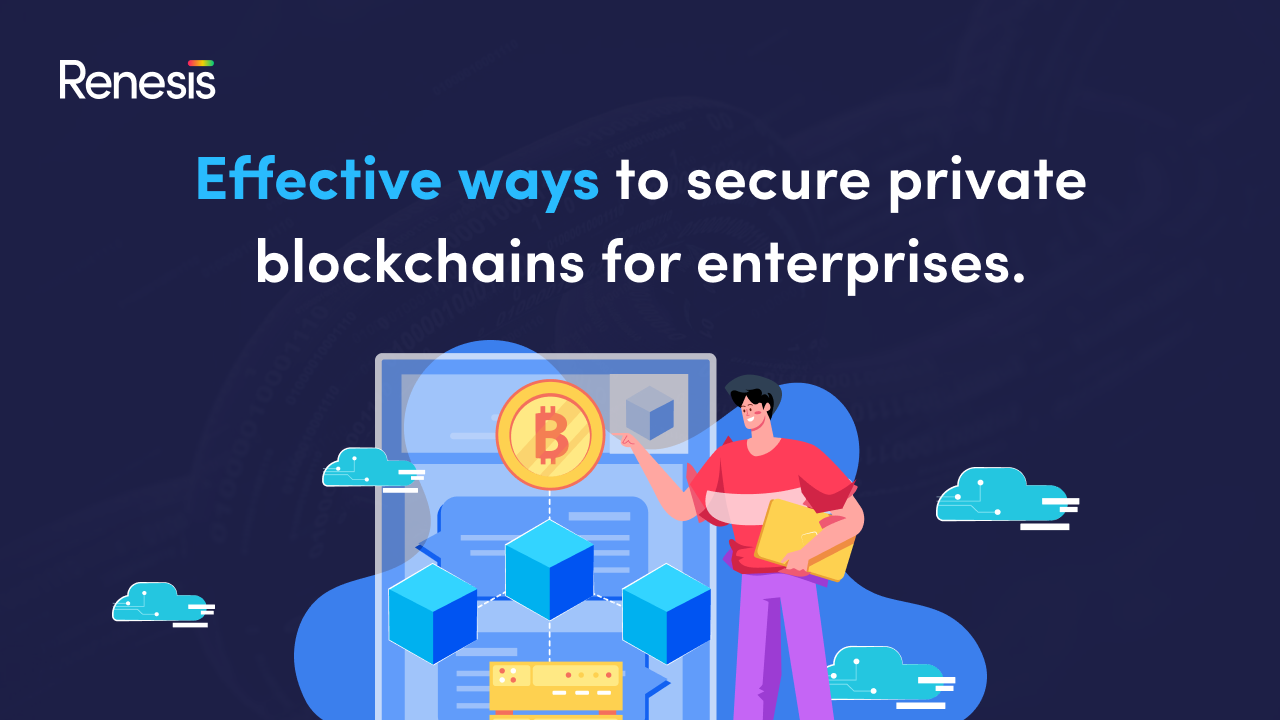Effective Ways to Secure Private Blockchains for Enterprises
As the world becomes increasingly digitized, enterprises must find ways to secure their private data. A blockchain offers a unique solution to this problem because it relies on cryptography to provide security.
In recent years, blockchain technology is being deployed by many organizations. A new generation of blockchain players has entered the conversation in the previous years, with technologies such as Hyperledger Fabric and Corda allowing business decision-makers to move away from cryptocurrencies in blockchain adoption.
However, a private blockchain must be properly secured. In this article, we will discuss effective ways to secure private blockchains for enterprises. We should take a moment to understand the difference between public and private blockchains before we proceed to private blockchains
Difference between Public Blockchain and Private Blockchain
A public blockchain is a decentralized network that anyone can join and participate in. Furthermore, on a public blockchain, transactions are typically immutable and publicly accessible. Unlike public blockchains, private blockchains are permissioned networks that only certain users can access. It will only be known about other members of the network by those who are a part of it.
There are a few key differences between public and private blockchains:
Governance Model:
Public blockchains are decentralized and have no single point of control, while private blockchains are centrally controlled by a single entity or group.
Scalability:
Public blockchains can support a large number of users and transactions, while private blockchains may have scalability issues due to their restricted access.
Privacy:
Public blockchains are transparent and all transactions are visible to everyone, while private blockchains offer greater privacy and confidentiality.
Enterprises may choose to use a private blockchain for its improved security and privacy features. However, it is important to note that private blockchains are not immune to attack and may still be vulnerable to certain security risks.
How to Secure a Private Blockchain Network?
There are a few effective ways to secure a private blockchain network. Let’s have a look!
1. Consider privacy-by-design:
By using this approach, you can manage, retain, and delete data at an early stage of the design process. Regulations such as GDPR and other laws regarding data privacy will be incorporated into the process. This approach has the potential to limit the type of data that can be stored on a chain due to regulatory requirements. The sooner you determine this, the better, so you can deploy a production-ready design.
2. Assessing the risks before deployment:
Establish a risk tolerance for deploying private blockchains within your organization by consulting relevant business units. In order to minimize residual risk, data must be protected through controls.
3. Perform periodic third-party risk assessments:
Maintain documentation of your connectivity requirements and review them regularly in order to ensure your blockchain’s security. Using a private blockchain, you need to ensure that no insecure sources are connected since data can be deleted or modified.
4. Set up a secure encryption process:
Security and scalability of key management are important, requiring backups, automated management, and enforceable requirements. You need to safeguard these keys in order to protect your data because unauthorized access to them could compromise the encryption, which would severely impact your privacy.
5. Maintain high-level security protocols on your private blockchain:
As part of this step, you need to make sure your private blockchain is protected by a firewall, authenticated with two-factor authentication, and monitored for file integrity.
You must prevent any unauthorized modifications to the data in this environment since it is not a public blockchain.
Business is already being transformed by blockchain technology. With more people using it, there must be security measures in place to ensure that they are aware of what they are doing.
Furthermore, it becomes very important to secure the supporting infrastructure of websites and applications that interact with users directly. Our blockchain experts at Rensis Tech have the ability to create scalable and secure blockchain applications and websites. Let’s talk about your idea!










